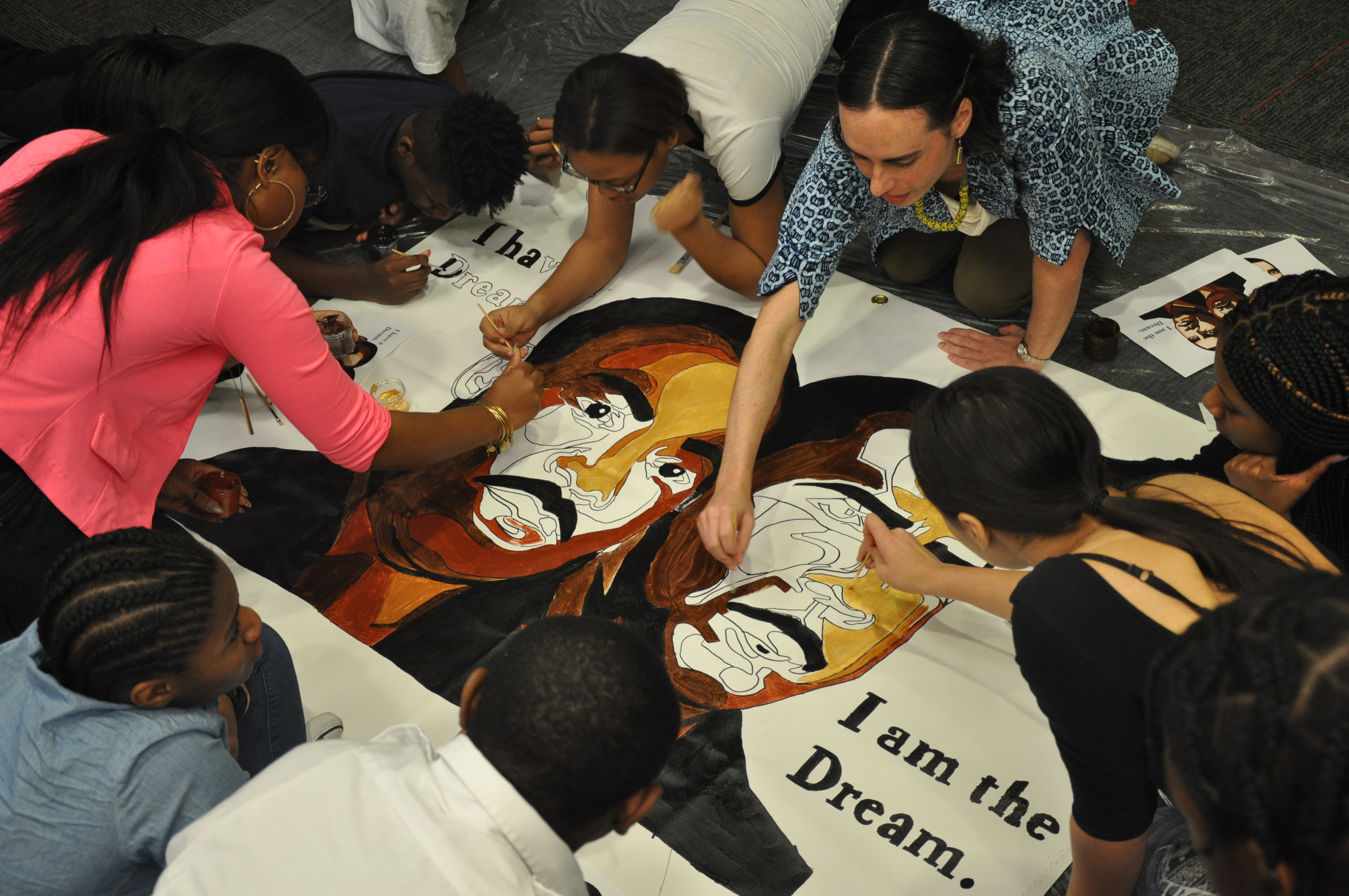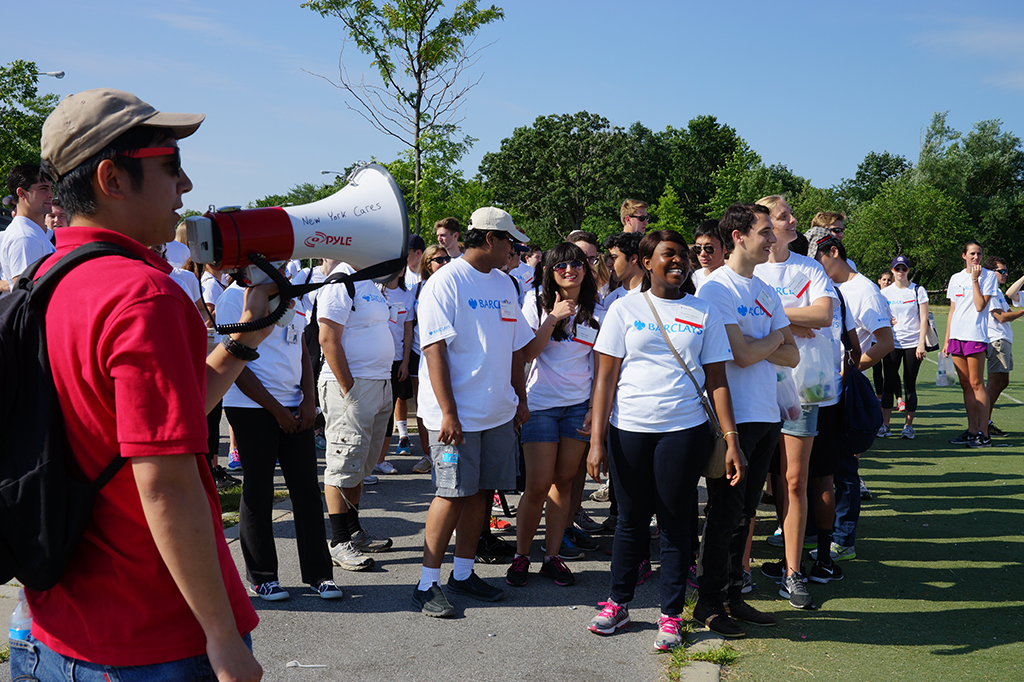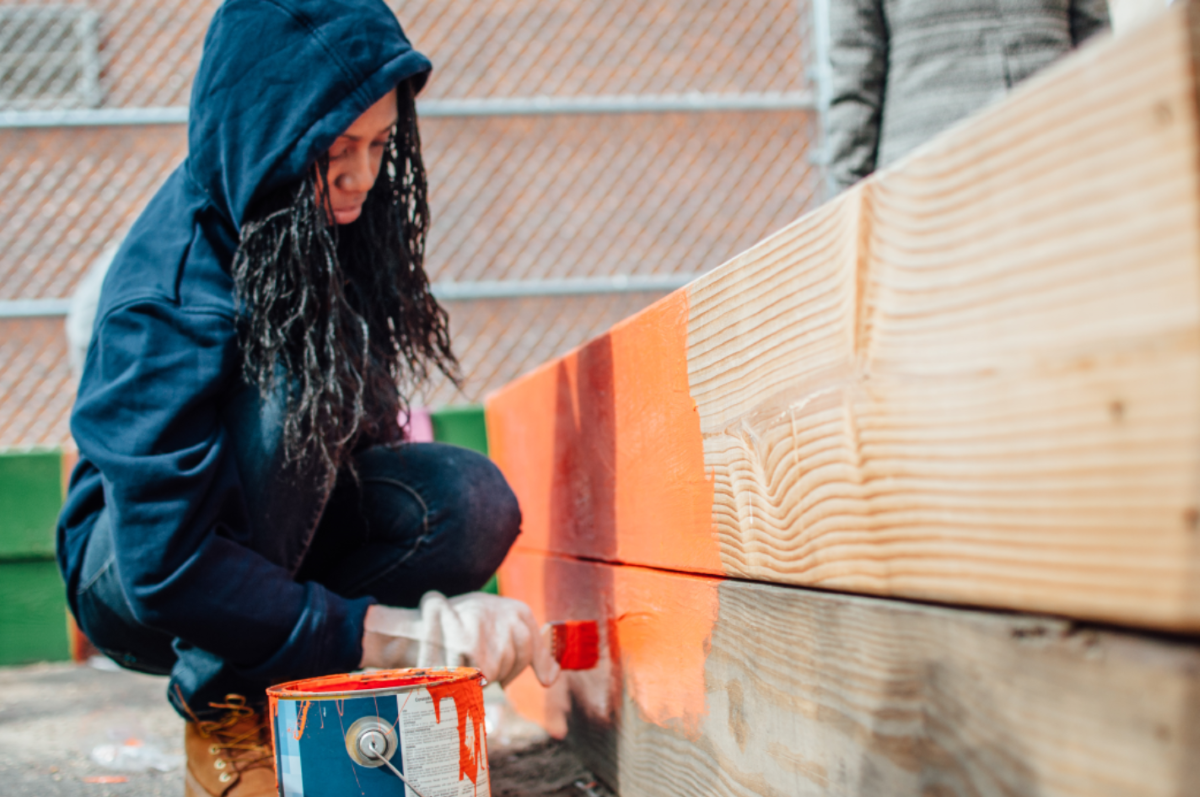Managing Projects
A Guide To Youth Friendly Volunteering

Volunteering at a young age has never been easier! New York Cares now offers Youth Friendly Volunteering, a program engaging children (Family Friendly) or teens (Teen Friendly) in year-round service opportunities.
- Family Friendly projects welcome New York Cares volunteers to bring their children (ages 5-13) on volunteer projects. Oriented adult New York Cares volunteers can participate directly with one or two of their children (ages 5-13) or legal wards.
- Teen Friendly projects welcome teen volunteers (ages 14-17) to sign up on volunteer projects. Oriented teen volunteers (ages 14-17) can serve alongside regularly oriented adult New York Cares volunteers, without their parent or guardian present.
Youth Friendly Project Checklist

Before the Project
- Send your standard reminder message in the project chat, more than 48 hours before the project
- Reminder: Pin your message to email a copy to each signed up volunteer
During the Project
- Documentation is not required to confirm the ages of children.
- Team Leaders should not sign any proof of volunteering. Please direct volunteers requesting proof of service to email info@newyorkcares.org.
| For Family Friendly |
|
| For Teen Friendly |
|
After the Project
- Enter Attendance and Impact
- Send thank you message in project chat (optional)
- Share any pertinent feedback with New York Cares
Engaging Youth Volunteers on Projects

Family Friendly
- Model or encourage parents to model tasks for their child to encourage hands on learning.
- If a child is being disruptive or having a hard time, leave parenting to the parents. To support, propose alternative tasks if available, offer space for the parent and child to step away from the project, or offer encouragement. Consult your rep on site for support.
- Be patient. Children may not complete tasks as efficiently as an adult might, but that does not mean they cannot make an impact.
Teen Friendly
- Treat teen volunteers as you would any volunteer and trust them to be responsible and mature.
- Do not attempt to discipline a teen volunteer. If a teen volunteer does not want to engage or is being disruptive, offer for them to sit to the side and take a break or leave the project early and notify New York Cares after the project. Consult your rep on site for support.
Safety

Family Friendly
- A child should never be left alone on a project.
- A child should never be left alone with an adult that is not the adult they came with.
- Make sure parents or are supervising their child throughout the project. For children 8 and under, make sure that parents volunteer alongside their child. For children 8+, parents and children can complete separate tasks in the same space.
- For some family-friendly projects, there may be some tasks that are not child-friendly and should be left to the adults. Children should not climb ladders, operate power tools, use knives or box cutters, etc.
Teen Friendly
Teen volunteers are still children and require extra safeguarding while on volunteer projects.
- Do not leave teen volunteers alone or alone with an individual adult volunteer (stay in groups!).
- If a teen volunteer reports feeling unsafe or uncomfortable as the result of an interaction with an adult volunteer or client, please take written notes of the teen’s experience and reach out to New York Cares after the project to file an incident report. Keep teen separated from that adult volunteer or client for the remainder of the project.
- Be conscious of tasks that may pose additional safety risks. Avoid having teens operate power tools or other machinery, etc.
In Case of an Emergency
Call 911. Make sure the community partner rep on site is present and aware of the emergency. If applicable, contact the emergency contact of the child or teen volunteer. After 911 and the emergency contact have been notified, contact New York Cares. If there is concern that an adult has harmed a child or teen, treat that situation as an emergency.